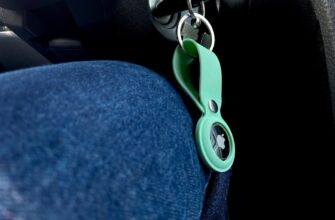- Why Nigerian Crypto Users Need a Reliable Bitcoin Wallet
- Top 5 Bitcoin Wallets for Nigerian Users
- 1. Luno: Best for Naira On-Ramping
- 2. Trust Wallet: Best Mobile Experience
- 3. Binance: Best for Active Traders
- 4. Blockchain.com: Best Web-Based Wallet
- 5. Ledger Nano X: Best Hardware Security
- How to Choose Your Ideal Bitcoin Wallet
- Setting Up Your Wallet: Nigerian-Specific Tips
- FAQ: Bitcoin Wallets in Nigeria
- Final Thoughts
Why Nigerian Crypto Users Need a Reliable Bitcoin Wallet
With Nigeria leading Africa in Bitcoin adoption, choosing the right wallet is critical. A good Bitcoin wallet combines ironclad security, low fees, Naira compatibility, and seamless local transactions. For Nigerians navigating crypto regulations and frequent naira volatility, your wallet isn’t just storage—it’s your financial gateway. This guide cuts through the noise to reveal the top 5 wallets tailored for Nigeria’s unique needs.
Top 5 Bitcoin Wallets for Nigerian Users
1. Luno: Best for Naira On-Ramping
- Pros: Direct Naira deposits via bank transfer/USSD, instant BTC purchases, beginner-friendly interface, licensed by SEC Nigeria
- Cons: Higher withdrawal fees (1% + network fee), limited altcoin support
- Nigerian Advantage: Seamless Naira integration and local customer support make it ideal for first-time buyers.
2. Trust Wallet: Best Mobile Experience
- Pros: Non-custodial control, supports 10M+ assets, built-in DEX access, P2P trading options
- Cons: No direct Naira deposits, requires third-party exchanges
- Nigerian Advantage: Offline security and P2P compatibility bypass banking restrictions—perfect for frequent traders.
3. Binance: Best for Active Traders
- Pros: Lowest fees (0.1% spot trading), Naira deposits via P2P, staking rewards, advanced charting
- Cons: Complex interface for beginners, occasional platform downtime
- Nigerian Advantage: Massive P2P marketplace with 500+ Nigerian traders and zero deposit fees.
4. Blockchain.com: Best Web-Based Wallet
- Pros: Simple setup, real-time market data, multi-signature security
- Cons: High gas fees during congestion, limited coin variety
- Nigerian Advantage: No ID verification for basic wallets—ideal for quick transactions under CBN radar.
5. Ledger Nano X: Best Hardware Security
- Pros: Military-grade offline storage, Bluetooth connectivity, supports 1,800+ coins
- Cons: High upfront cost (₦150,000+), no direct Naira purchases
- Nigerian Advantage: Protects savings from exchange hacks and naira devaluation—essential for long-term holders.
How to Choose Your Ideal Bitcoin Wallet
Prioritize these factors for the Nigerian context:
- Naira Compatibility: Can you deposit/withdraw local currency directly?
- Fee Structure: Avoid wallets with hidden conversion charges (e.g., 5% FX fees).
- Regulatory Compliance: SEC-licensed options (like Luno) reduce account freeze risks.
- Security Level: Match wallet type to usage—hardware for savings, mobile for daily trades.
- P2P Support: Vital for bypassing CBN’s banking restrictions since 2021.
Setting Up Your Wallet: Nigerian-Specific Tips
- Use VPN during setup if experiencing platform geo-blocks
- Enable 2FA with authenticator apps (not SMS—Nigerian networks are vulnerable)
- For P2P trades, verify partner transaction history and completion rate
- Always test with small amounts (<₦1,000) before large transfers
FAQ: Bitcoin Wallets in Nigeria
Q: Is Bitcoin legal for Nigerians to use?
A: Yes! While the CBN banned banks from crypto transactions in 2021, individuals can legally own and trade Bitcoin via P2P platforms or international exchanges.
Q: Can I avoid high fees when converting Naira to Bitcoin?
A: Absolutely. Use wallets with direct Naira pairs (like Luno) or P2P marketplaces (Binance/Trust Wallet) to bypass third-party FX markups.
Q: What’s safer for large holdings: mobile or hardware wallets?
A: Hardware wallets like Ledger are unbeatable for ₦500k+ savings—they’re immune to online hacks. For under ₦100k, trusted mobile apps with biometric locks suffice.
Q: How do I cash out Bitcoin to Naira securely?
A: Top methods: 1) P2P exchanges (Binance/Remitano), 2) Crypto-to-bank services like Busha, or 3) Bitcoin ATMs in Lagos/Abuja (3% average fee).
Q: Are Nigerian Bitcoin wallets taxed?
A: Not currently, but declare crypto earnings if exceeding ₦25 million annually per FIRS guidelines. Wallet transactions themselves aren’t taxed.
Final Thoughts
Your perfect Bitcoin wallet balances Nigerian practicality with bulletproof security. For daily transactions, Luno and Binance lead with naira support. For sovereignty over savings, Trust Wallet or Ledger are unmatched. Start small, prioritize P2P options, and never share your private keys. As Nigeria’s crypto landscape evolves, these wallets ensure you stay ahead—securely and profitably.








